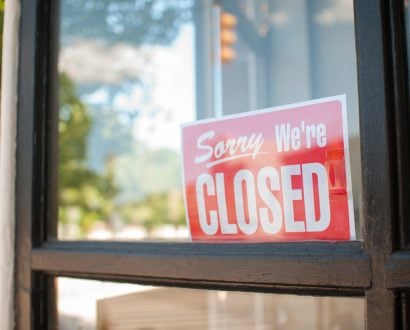3 business disasters to avoid

Business disasters come in all shapes, sizes and industries. There are many famous examples – think Enron, Blockbuster Video and Dick Smith. Businesses can be vulnerable to disaster at any stage, but start-up and expansion phases are particularly risky. While the failure of a business is a disaster for those involved, it’s a great learning opportunity for other entrepreneurs. Here are three business disasters to avoid – and the lessons they teach.
1. Starbucks in Australia
Despite being well established in the US, Starbucks’ expansion into Australia didn’t go well. Aussies love their coffee, so surely the Seattle-based company would be welcomed with open arms. The decisionmakers at Starbucks certainly thought so, with nearly 90 Australian stores opened from 2000 to 2008.
"When they launched, they launched too rapidly and they didn't give the Australian consumer the opportunity to really develop an appetite for the Starbucks brand," O’Connor said.
They saw scaling as the panacea for success – and being a global company with plenty of cash, they could afford to absorb the losses, which only kept them hurtling down the same disastrous route.
Either Australian customers were too slow to realise what they needed in coffee (unlikely), or Starbucks should have launched fewer stores and listened to their customers before scaling up. In 2008, Starbucks was forced to close 70% of its Australian locations. An avoidable disaster.
The lesson: Once the product is launched, the clock is ticking. If the customers have not accepted the new product then patiently waiting might be understandable but an urgent revision of the assumptions behind the KPIs would be wise. Successful entrepreneurs have learned to accept what the market says as reality.
2. Pie Face
Founded in 2003, Pie Face is a chain of pie and coffee retailers that experienced rapid growth in Australia and overseas. Unfortunately, mounting debts forced it into liquidation in 2014, resulting in the closure of most of its stores. Franchisees were overspending on rent to occupy CBD hotspots, putting extra financial pressure on them to break even. The company owed money to every one of its landlords. Pie Face is a lesson in what happens when entrepreneurs turn a blind eye to cash flow problems and ignore mounting debt.
Cash flow is something a business owner simply cannot ignore, and one of Australia’s most famous entrepreneurs is known for being obsessive about it. As referenced in the book Murdoch: The Making of a Media Empire, Rupert Murdoch was "interested, above all, in cash flow".
While it may sound a little soulless, by taking a leaf out of Murdoch’s book, you can avoid the pie-in-the-face humiliation of a business collapse.
The lesson: Naturally entrepreneurs fall in love with their idea, be it a service or a product. The actual product itself can become the centre of attention. Stepping back would reveal that it’s the business model that’s important, and the business must always pay its way.
3. Masters
All start-ups could do with a bit more money behind them. But imagine starting a business, essentially a start-up, with a whopping $3 billion in funding. That’s what Masters did, launching one into the Australian market like a runaway train before its new board chair slammed on the brakes.
According to the Australian Financial Review, the expansion was "strangled by a hard-headed new Woolworths board led by Scotsman Gordon Cairns, who simply couldn't stomach tipping any more funds into the Masters hardware chain, after $3 billion-plus had leaked into the drains outside its 63 stores across Australia".
Critics pointed to the Australian market being different to the US, and suggested Masters had stocked too many products Australians didn't want to buy from a hardware store, including washing machines and vacuum cleaners.
Its early marketing and store designs were deliberately aimed at women, alienating hordes of tradesmen who effectively remained loyal customers at Bunnings. Had Masters spent more time understanding what Australian consumers wanted from a home improvement store before investing billions, perhaps this disaster could have been avoided.
The lesson: Persistence can sometimes be confused with ego. Having committed to a business model, being watched by everyone who knows you, can unwittingly lock you into a dismissive response to any suggestion of a major rethink. Be bold and learn to listen.
Not every business will end up like these but to avoid disaster, you’ve got to be smart and pragmatic. As American comedian WC Fields said: "If at first you don't succeed, try, try again. Then quit. There's no point in being a damn fool about it."
Read next: Lessons from history's worst CEOs